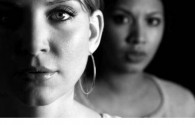Maxine Brown
Job description: Volunteer at St Mungo's
Areas of interest: Housing and homelessness – services for women with complex needs
Maxine Brown's Recent Activity
"I don’t remember a time from my childhood home when I felt happy, safe or secure or received any positive attention. I would have liked if my teacher at primary or secondary school had picked up that I was withdrawn or acting out and asked why that was. I didn’t know the support was out there. It didn’t even come into my mind to ask for help, as I accepted the abuse and thought it was normal. I never had any help to get my hair combed or clothes ironed and would get beaten for not being ready for school.
As I got older I wanted to be loved and belong somewhere as I had never felt this before. I could be hooked in by any man that was nice to me as I didn’t have the foundation of self esteem that I needed. Abuse stopped me taking my own space in life. I lost the ability to stand up for myself and was manipulated, exploited and beaten. Some people who are abused can go on to abuse others, but most just beat themselves up inside. I turned to drug use to fill that void and I looked at my house it was unmanageable and I reflected it looked like me- totally unmanageable.
I got to a point that I had to move to women’s refuge because of domestic violence. You just take the slap and abuse because you have taken it all your life. When I was there the council chased me for being behind on rent. I went back to the flat and was served eviction papers. I tried to overdose the day the bailiffs came and I wanted them to find me there dead on the floor. I woke up though, and after some time in hospital stayed in various temporary accommodation projects, slept in a tower block and was homeless. All I had was my jeans and top and I thought I was finished. Because I had not been able to ask for help as a child, it stays with you and I couldn’t ask for help as an adult. The emotional pain dictated my life.
After I did finally receive help I stopped taking the drink and drugs and things changed. I started to recover day by day. It takes honesty and trust. I have had to go back and nurture little Maxine, and I had to forgive my mum and the woman she gave me to, so that she is now out of my life and out of my mind. If kept the anger and pain I would not have the place to grow, I have to let go and practice acceptance of my past, but I know look forward to my future a day at a time. I found spirituality within narcotics anonymous meetings and I am inspired daily through affirmations and other literature."
Reply To: Childhood trauma and women’s homelessness
"I think women in recovery need someone they can identify with that has been through addiction, abuse, and exploitation as well - somebody who can have empathy and compassion, gentleness, patience and tolerance.
Women experience pain then they get trapped in a cycle of hurting themselves, wanting a drug to numb their feelings. You become trapped in a spiral of obsession and compulsion. And negative patterns of behaviours
Women can get involved in street sex work and that can reinforces the feeling of being not good enough (I am such a failure, I have lost the power of choice drugs are dictating my life).
The grip of addiction is overpowering. Nothing works until you are honest with yourself. I had the best therapist and key worker but it wasn’t sufficient enough, I was using drugs for 20 years. It wasn’t until I was honest and saw all the different parts of myself- including the dysfunctional, the hurt and the confused areas. All these parts lead to isolation because of the shame and stigma associated with drug use.
Narcotic anonymous (NA) has helped me as I started to talk about what I was facing, and by talking, took the power out of it. I learnt to look at recovery one day at a time, as a lifelong journey, and made new associations with those who had been through it. Knowing people 10 years clean had a big impact, or even better six months I saw hope for me.
I think talking through it all is what women find the hardest. We don’t want to go back over the abuse, in what should have been a safe home. But you have to; go there to come out the other side. We trust someone even though we have trust issues’, we learn to take positive risk with the chosen person for the first time in a long time and we let someone into the painful empty dark place within us that is so tired and used up. We seek towards a power greater than ourselves to restore us back to sanity.
Sometimes in NA, women can be called up by men in the group, saying it is about recovery when really they want to get close and have a relationship or just sex. You have to keep up some barriers in this way to make sure you are not being exploited.
In mixed treatment services both men and women can cling to each other in relationships. If a woman thinks a man likes her she can mistake that feeling for self worth. We need to challenge our core beliefs developed in childhood about being not loved or not safe.
Women who work as prostitutes have a barrier up to shield out feelings of sadness and shame. They develop a pattern of behaviour to numb their feelings with drugs and start to believe ‘this is who I am’. A punter can rape her and not pay, her boyfriend could be pimping her out, and the drugs are both killing and comforting her. You are left in a lonely space, with emotions creeping out as you sit on your own waiting for a dealer.
The message I want to share with other women is ‘we recover’. Be honest and take it one day at a time. It takes courage, support and time. I have done it, and everyone deserves a second chance. I have built my self esteem up though things like volunteering at St Mungo’s. I am happy to say that from feeling dead and blank, today I feel alive."
Reply To: Substance use: helping women with drug and alcohol problems




